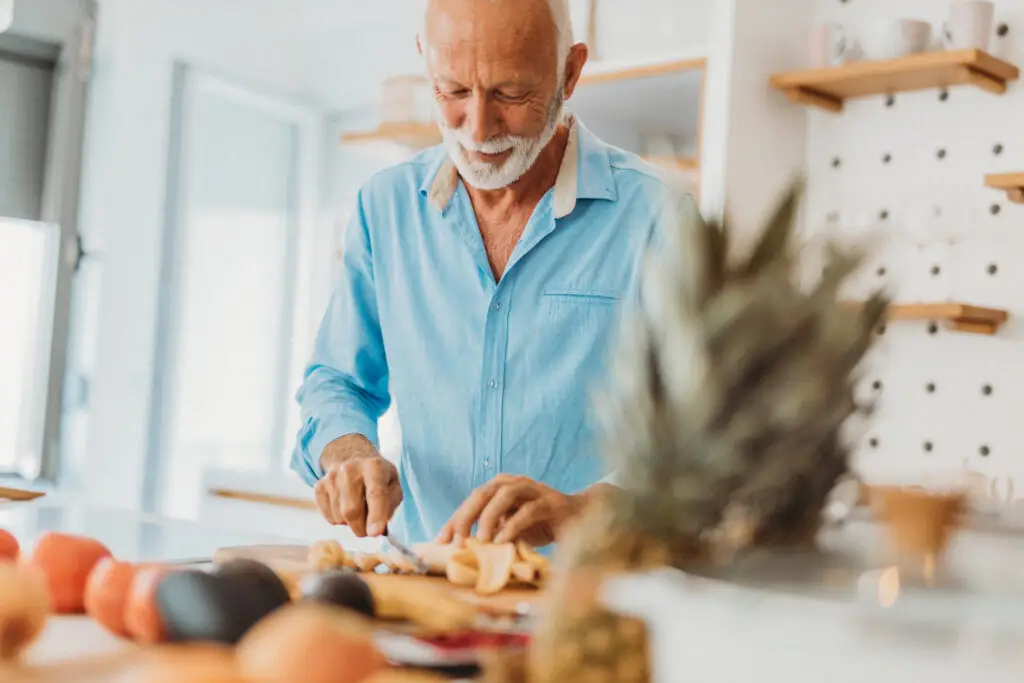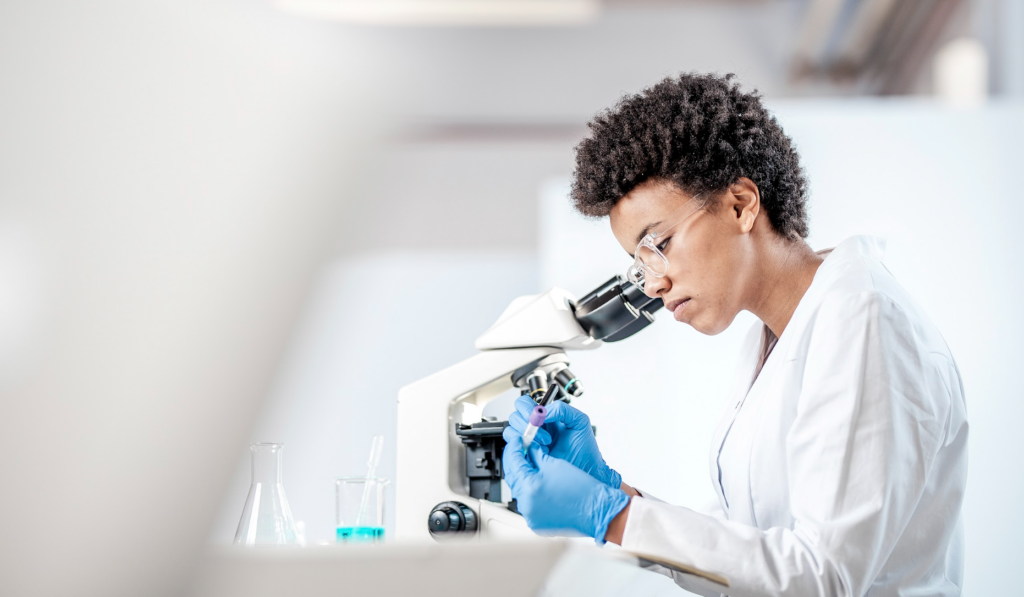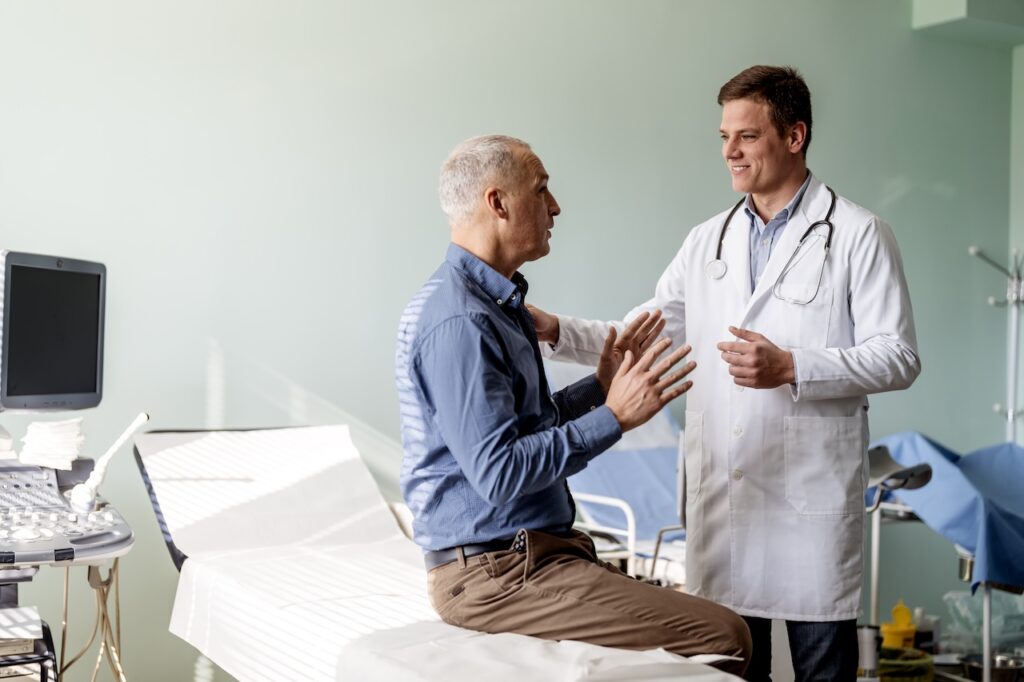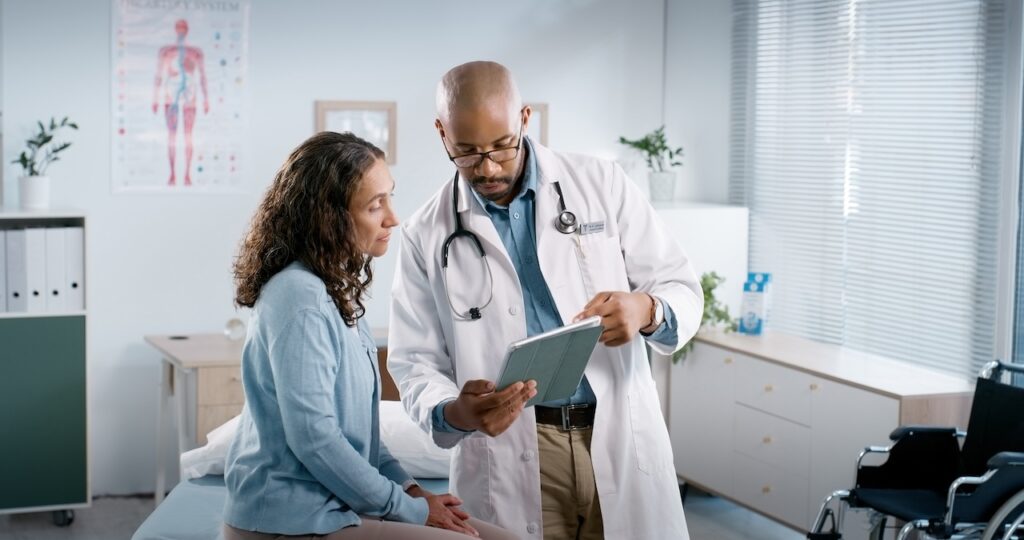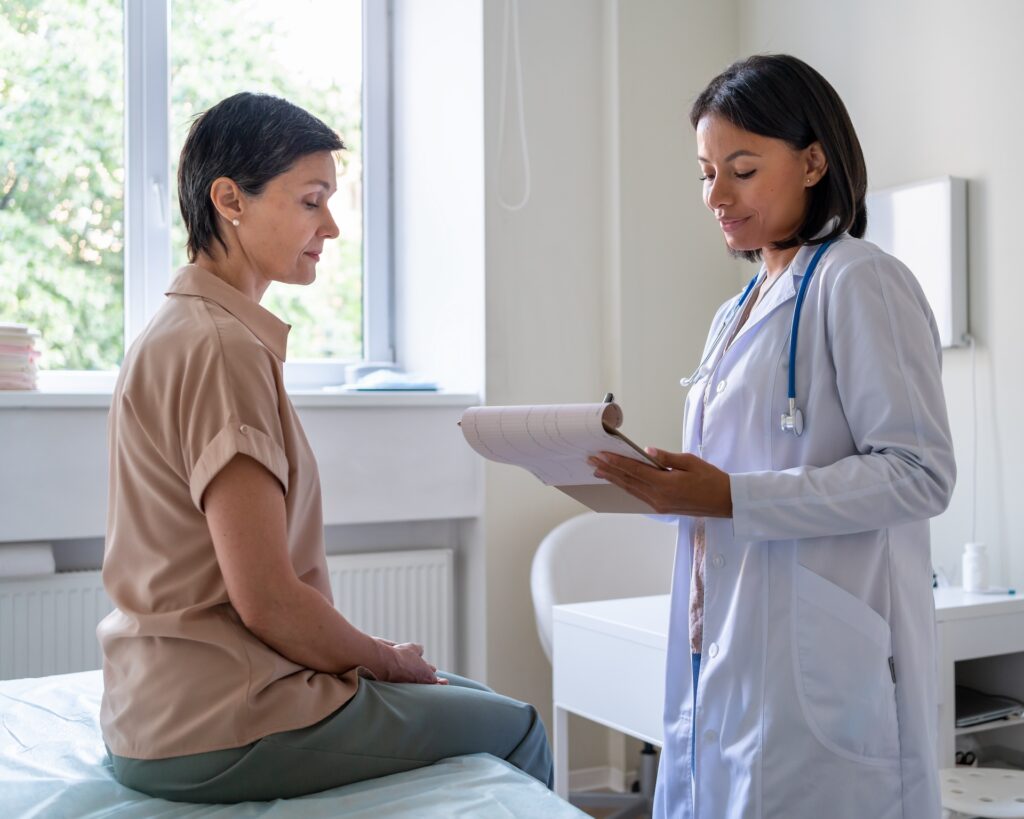While you’re going through treatment for non-small cell lung cancer (NSCLC), it’s important to maintain a healthy weight, eat healthy foods, and also avoid malnutrition and dehydration. Chances are you might not feel well during your treatment – both physically and emotionally – but keeping an adequate number of calories as well as protein and nutrients is vital no matter your treatment path.
You might not feel like eating meals like you used to, so you’ll need to find new ways to keep your calories up, whether you’re feeling nauseous, too tired to eat, or just too tired in general to prepare your foods. According to the American Society for Parenteral and Enteral Nutrition, approximately 45% to 69% of people diagnosed with lung cancer experience malnutrition, which can result in increased symptoms, reduced quality of life, and shorter survival rates. In one study, patients with lung cancer who were following a more nutritious diet were seen as having better emotional health as well as decreased insomnia, diarrhea, shortness of breath, tingling in the extremities, and chest/arm/shoulder pain.
Here’s a list of tips for maintaining a healthy weight during your treatment.
Eat small meals throughout the day.
Before your treatment, you might have been on a food regimen that relied on three meals per day. This type of schedule might get more difficult during treatment, as you might not feel as motivated by food or even up for eating overall. During treatment, it’s more important to prioritize just eating when you’re hungry and relying on small meals throughout the day. Try to eat every few hours, four to six times each day. SOURCE
Try bland foods when you’re feeling nauseous.
Peanut butter on a cracker or a cheese sandwich can get you through the day, especially when you’re not feeling well, or if the smell of certain foods has become too much to bear. Your body needs protein to help with cell and tissue repair, so try to add about 20 grams (the size of a fist) of any of the following to your diet: chicken, fish, turkey, eggs, cheese, nuts, nut butters, beans, or soy-based foods like tofu or edamame.
Don’t be afraid to snack or opt for pre-packaged food.
You’re inevitably going to be tired, so if you’re not relying on a caregiver to help manage your food intake during treatment, then make sure you have plenty of snacks on hand. Yogurt, cereal, pudding, soup, crackers, sandwiches with simple ingredients like cheese or peanut butter can get you through the day, especially when you’re not feeling well. SOURCE.
Stay very hydrated.
Hopefully you are already drinking at least 64 ounces of water each day (or approximately half your body weight), but if not, then try to start today. If water makes you nauseous, try a sports drink like Gatorade, juice, or milk.
Add an Omega-3 supplement to your day.
Talk to your care team about taking Omega 3 Fatty Acids, to help with maintaining muscle mass and possibly reducing inflammation during your treatment. Omegas are also found in avocados, nuts, seeds and olive oil. SOURCE
Take a short walk after dinner.
Fatigue is bound to happen during treatment, but staying sedentary 24/7 may make you feel worse. When you’re struggling with your mental health during lung cancer treatment and feeling physically tired overall, sometimes we tend to skip eating healthy overall and lean on those feelings as an excuse. After dinner, or after you’ve had a snack around sunset, try and take a short walk, even just down the street and back, to keep your circulation flowing, and free your mind even the tiniest bit. Sure, you may inevitably even burn a few calories, but that shouldn’t be your primary focus during treatment as every calorie, nutrient, and carb will be important in helping with your energy and keeping your weight steady during your treatment. SOURCE
If you have questions or would like to talk to an Outcomes 4Me oncology nurse practitioner, you can connect at no charge through the Outcomes4Me app, using the “Ask Outcomes4Me” button.
Personalized support for real care decisions
Understand your diagnosis, explore clinical trials, and track symptoms--all in one place.
Get started
Compare treatments, prepare for appointments, and track side effects—all in the app
Built for your diagnosis, Outcomes4Me gives you the tools to make confident, informed decisions—right when you need them.
Continue in app
